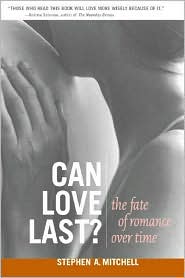Can Love Last? – Romantic and Maturing Love
This week we ask ourselves this big question and I wonder how we might possibly reach an answer in one lunch hour when poets and philosophers have been attempting to understand this mysterious and unpredictable human impulse since we humans first learned to talk.
 The Greeks cleverly distinguished four different types of Love: sex, erotic, philia or friendship and agape or caritas which can roughly be translated as care. In Love and Will Rollo May advocates an integration of sex with these other aspects to deepen intimacy. Written in the 60s this book describes the poverty that results from flying to the sensation of sex innorder to avoid the commitment of genuine love.
The Greeks cleverly distinguished four different types of Love: sex, erotic, philia or friendship and agape or caritas which can roughly be translated as care. In Love and Will Rollo May advocates an integration of sex with these other aspects to deepen intimacy. Written in the 60s this book describes the poverty that results from flying to the sensation of sex innorder to avoid the commitment of genuine love.
The British Object Relations thinkers of the Independent group became interested in feelings and how important it was to have access to the whole spectrum of feelings in order to be oneself and to relate to whole objects. I want to look briefly at the way Winnicott values aggression as an aspect of mature sexual functioning and at Bion’s thinking about the first emotional impulses: to love, to hate and the urge to know.

We have already learned a little about the operation of the limbic brain and attachment theory and so we know that creating the conditions that allow love to last is vital for our happiness and security and that alienation or separation from those we love causes us to suffer. But perhaps I am failing here to differentiate attachment and love and perhaps they are not at all the same thing.
Lewis, Amini and Lannon in their ground-breaking work A General Theory of Love distinguish between being in love and loving. “In a dazzling vote of confidence for form over substance, our culture fawns over the fleetingness of being in love while discounting the importance of loving”. These wise men suggest that adult love asks us to come to know the other whereas in love demands only the brief acquaintance necessary to recognise emotional patterns of parents which release an intoxicating feeling “that the other fits in a way that no other will, the desire for skin to skin proximity and delirious urge to disregard all else.”
The Relational Psychoanalyst Stephen Mitchell has written a small book on this very subject and I will present some of his ideas about what constitutes romantic love and what causes the difficulties in maturing our loving beyond the initial pair bond.

Through his work we encounter the themes of safety and adventure, idealization and denigration, fantasy and reality, aggression and danger of desire, control and surrender and how these play out in our sexuality and intimacy.
Please bring along your own ideas about love and loving, perhaps a poem or a story to end our session.


No comments:
Post a Comment